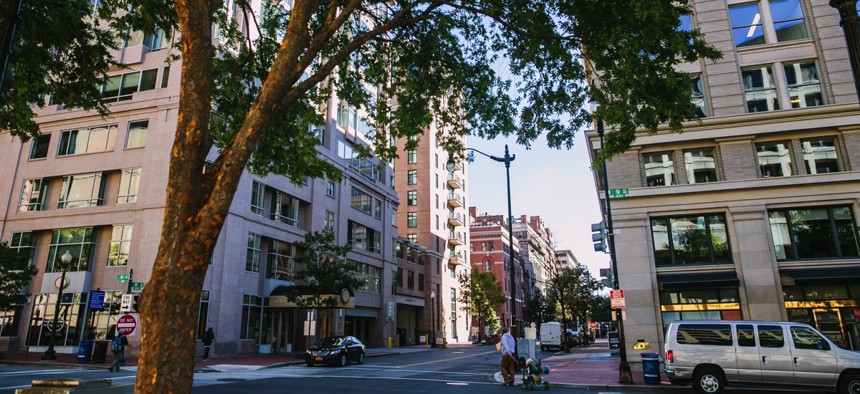100 Resilient Cities Adds 37 New Member Municipalities

Washington, D.C.
The global network helps cities hire chief resilience officers and access partner support for projects meant to prepare local governments for challenges like climate change.
WASHINGTON — A final group of 37 municipalities, eight in the U.S., have been named members of 100 Resilient Cities, a $164 million effort to address challenges from climate change and other forces that will increasingly impact urban areas.
Founded in 2013 by the Rockefeller Foundation, the global network provides member cities with grant funding to hire chief resilience officers to assist municipal officials in crafting resilience strategies. Those strategies, in turn, help cities prepare for the social and economic impacts of globalization, urbanization and related challenges.
One of the new U.S. municipal governments added to the 100 Resilient Cities group is Washington, D.C.
“As our nation’s capital grows, we must find ways to bolster our resilience while protecting and preserving our prosperity,” D.C. Mayor Muriel Bowser said in an announcement released Wednesday.
The other seven U.S. cities new to the group include a unique partnership between Miami, Miami Beach and Miami-Dade County; Nashville, Tennessee; Seattle; Atlanta; Minneapolis; Honolulu; and Louisville, Kentucky. Of the international cities, nine are in Asia, six are in Latin America, five in Africa, four in Europe, three in Canada, and two in the Middle East—a group that includes Buenos Aires, Argentina; Manchester, England; Seoul, South Korea; and Lagos, Nigeria.
Members gain access to support from 100RC’s partners, valued in excess of $200 million, in the form of tools, services and technical assistance from the likes of Microsoft and the World Bank. Resilient cities may also partner with each other, as Berkeley, California, did when officials heard from water management experts at a gathering in Rotterdam, Netherlands.
“The threshold of success for 100RC will not solely be progress within our network of 100 cities,” Michael Berkowitz, 100RC's president, said in a statement. “Instead, it will be the ability for solutions to scale, and for all cities around the world to build off of the innovative work leveraged by these 100 Resilient Cities through implementation of their Resilience Strategies.”
Short-term “shocks” like natural disasters and long-term “stresses” like cyberattacks both fall under the umbrella of resilience member cities hope to address.
To date, more than 50 CROs have been appointed within the network—inspiring outside governments to follow suit.
Three members—New York City; New Orleans and Norfolk, Virginia—received $400 million total from the U.S. Department of Housing and Urban Development’s National Disaster Resilience Competition, based on their resilience strategies. And, in 2015, credit agency Moody’s maintained Norfolk’s credit rating citing the city’s strategy.
“Incorporating resilience planning and principles not only prepares cities for disasters and long-term threats, but also improves everyday living standards for all members of an urban community,” said Judith Rodin, Rockefeller Foundation president, in the announcement.
Dave Nyczepir is a News Editor at Government Executive’s Route Fifty.
NEXT STORY: Looking at Transportation Funding Beyond the Gas Tax






